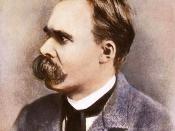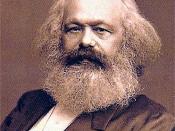Classical Liberalism Challenged by Marx and Nietzsche
Through history, many have challenged the validity and ideals of classical liberalism, and understandably, even those who find fault in these ideas also do not agree with each other. The strength of classical liberalism is that it transcends individuality while allowing the differences in people to collectively create strength, rather than isolated weakness. It is the preservation of our natural rights, and thus far, as a political philosophy it has been successful. Of course, given liberalist beliefs, it seems fitting that Karl Marx and Friedrich Nietzsche, and their indirect objections, should be given an audience. While socially irrelevant, each of these men have different critiques of what can arguably be called the most successful political philosophy in history, and as it turns out the claims of one happen to be far more relevant than the other.
The basis of Marx's beliefs begins with his assumption that all people with to live 'good' lives, and his claim that the essence of human nature lies in free and creative labor.
Furthermore, he takes for granted the notion that people would want to participate in free and creative labor. On this note, Marx states, "The more the worker produces, the more his production increases in power and scope...The more commodities the worker produces, the cheaper a commodity he becomes. The extinction of value from the world of things is directly proportional to the devaluation of the world of men. Labor does not only produce commodities; it produces itself and the worker as a commodity..."(p.133) Marx forces one to step back and reconsider one's role in the socially Darwinistic culture that is classical liberalism. To Marx, when a person is performing labor without creativity or happiness, they externalize that action, so instead of their labor creating a...


